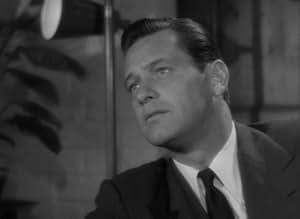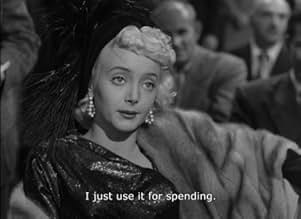The Kefauver committee's hearings into organised crime had millions of Americans glued to their TV screens and naturally Hollywood was quick to pounce. Of the film noirs inspired by the hearings the most accomplished is arguably this one directed by one of cinema's great stylists William Dieterle and featuring strong performances from a cast that can only be described as top notch.
Edmond O'Brien as moral crusader Conroy is dedicated but never self-righteous whilst William Holden's McKibbon is one of his cynical roles from this period. Alexis Smith as Amanda is required to be earnest and this she does very well. Ed Begley is spot on as an utterly loathsome crime boss supposedly based on the equally loathsome Frank Costello and as there is no show without Punch his sidekick is played by the ubiquitous Ted de Corsia. Carolyn Jones makes a delicious debut in a brief appearance as a gangster's moll.
Mention must be made of the expertise behind the camera, notably Lionel Lindon's cinematography, the literate script for which Warren Duff is credited but which shows the influence of the legendary but uncredited W. R. Burnett and not least the superlative editing by George Tomasini whose contribution to the films of Hitchcock was to prove immeasurable and whose editing here of the climactic scene at the boxing match typifies his skills. Apart fom 'stock' music at the start and conclusion, it is the sounds of the city that provide the soundtrack throughout.
Dieterle had begun as an actor in German silent films and adapted brilliantly to the Hollywood system but sadly, although he was never officially charged, the HUAC made life difficult for him and he was soon to find worthy directorial assignments elusive.
The film itself offers a grim reminder that even though the occasional battle against organised crime may be won, the war is ultimately lost. It is akin to the mythological Hydra and whenever one of its many heads is cut off, another grows in its place.




































